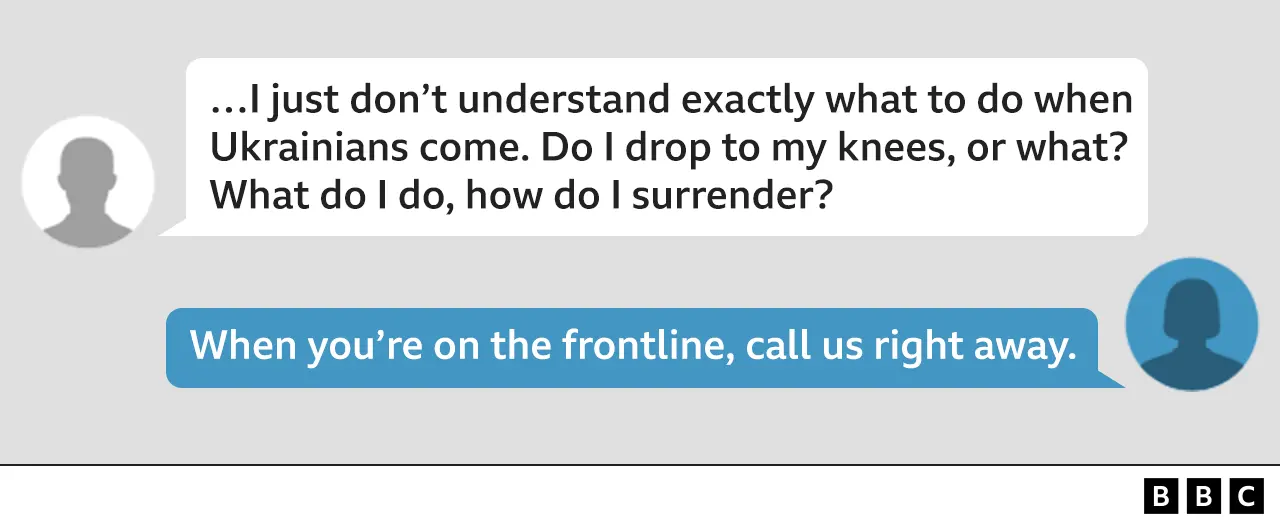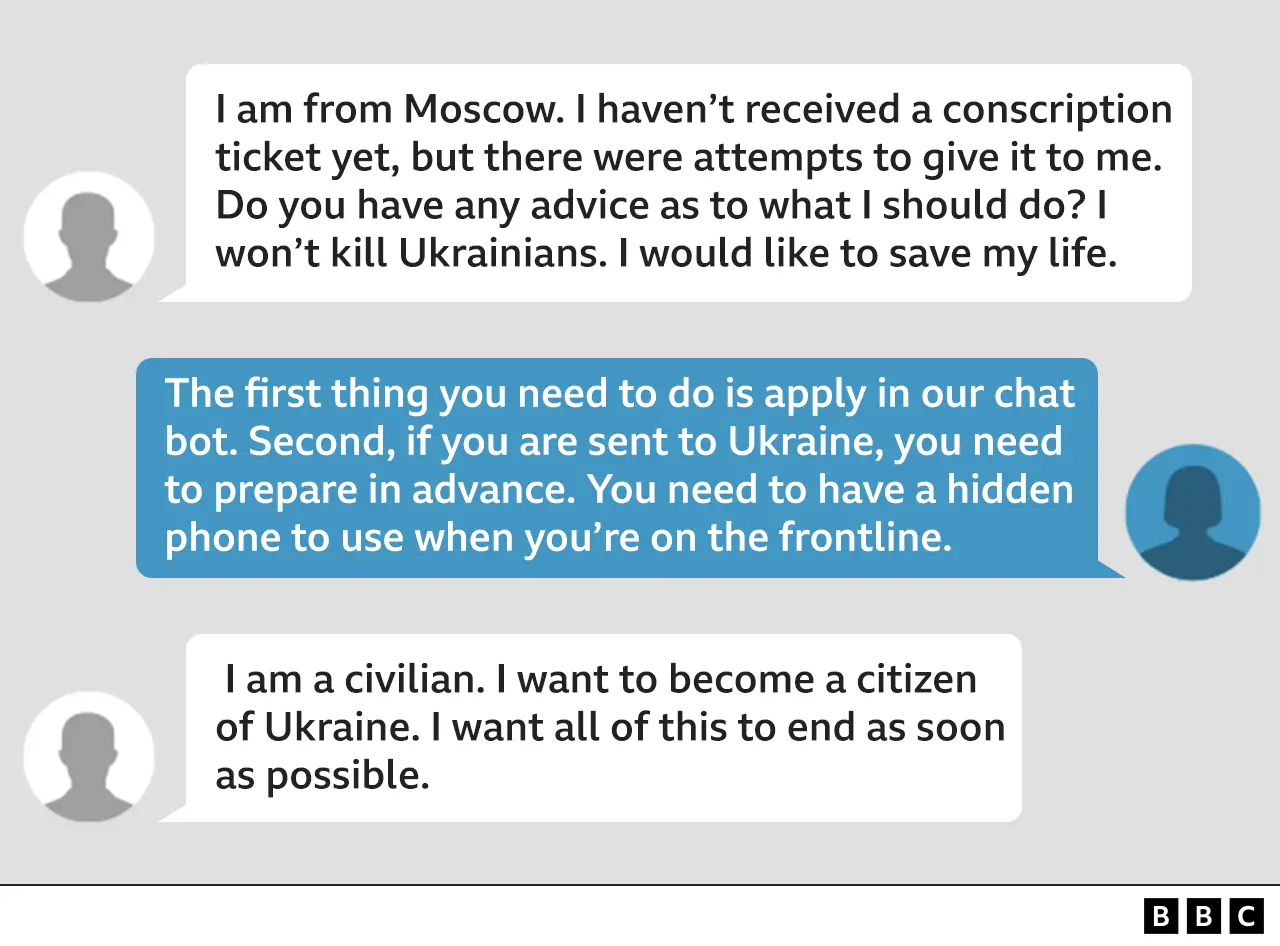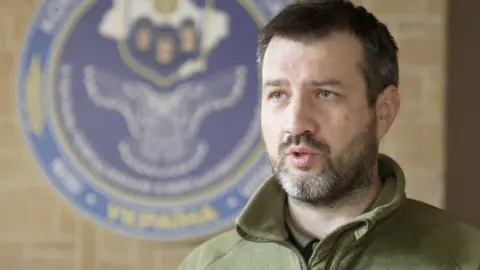Ukraine war: The surrender hotline for Russian soldiers
 BBC
BBCThe Ukrainian government has said a scheme it created for Russian soldiers to surrender is getting up to 100 enquiries a day.
The "I Want To Live" project was started in September.
By calling a hotline or entering details through messenger apps, Russian troops can arrange the best way to surrender to Ukrainian forces.
Officials in Kyiv say they've had more than 3,500 contacts from invading personnel, as well as their families.
There's been an apparent increase since Russian President Vladimir Putin mobilised hundreds of thousands of Russian men, and since the city of Kherson was liberated.
The BBC has been given recordings from some of the calls.

As the dark hallways suggest, Ukraine's headquarters for the Treatment of Prisoners of War isn't immune to the power blackouts which plague the country.
In a small office we meet Svitlana, not her real name, a Ukrainian call handler who speaks to Russian soldiers daily.
They can either get in touch over the phone or on most messenger apps, such as Telegram and WhatsApp.
She explains the evenings are busiest, when troops have more spare time and can sneak off and make a call.
"First of all, we hear a voice, mainly male," she explains. "It's often part-desperate, part-frustrated, because they don't fully understand how the hotline works, or whether it's just a set-up.
"There's also curiosity because many call not to surrender but to find out how they could if needed. It's different every time."


Svitlana isn't allowed to tell us how many Russians she's helped, or exactly how it happens. They're just told to share their location before being given further instructions.
Some Russian soldiers also get in touch to provoke them, she says, although she doesn't think all of them believe the Kremlin's baseless claims that Ukraine is run by Nazis.
"We can't judge an entire country," she says. "The majority of them are worried about their lives."
Svitlana also recalls a call from one man who lived in occupied Crimea and had been mobilised to fight against his own family, and country.
It seems Moscow has now blocked the phone numbers from being reached inside Russia. Calls from either a UK or Russian Sim card are greeted with an error message.


"Ask yourself a question - what are you fighting for?" says the dramatic voice-over in Ukraine's "I Want To Live" propaganda video aimed at Russian soldiers.
Explosions appear in sync with evocative music, and there are images of Russian soldiers apparently surrendering before two phone numbers are shown at the end.
They're even told to wave a white flag if they're too close to the front line.
This is, of course, part of the information war. The anatomy of Ukraine's attempts to weaken Russian morale.
On the walls of Svitlana's office are pictures of Ukrainian prisoners of war. They're all thought to still be alive, and this hotline is central to Kyiv's efforts to bring them home.
Once they surrender, Russian prisoners of war (PoWs) can be used as currency in future exchanges.
According to the Institute for the Study of War, the Kremlin is also carrying out more prisoner of war exchanges as it tries to soothe critics from inside Russia.
There are thought to be thousands of PoWs on both sides, but the exact numbers aren't clear.

"We especially want to target the partially mobilised who not only can't fight but are thrown in as cannon fodder," says Vitalii Matviyenko, who heads up the scheme.
"This project was created so their lives will be guaranteed if they surrender voluntarily."
For outnumbered Ukraine, it's also hoped it will soften the belly of their larger invader.
Additional reporting by Daria Sipigina, Hanna Chornous and Moose Campbell.
